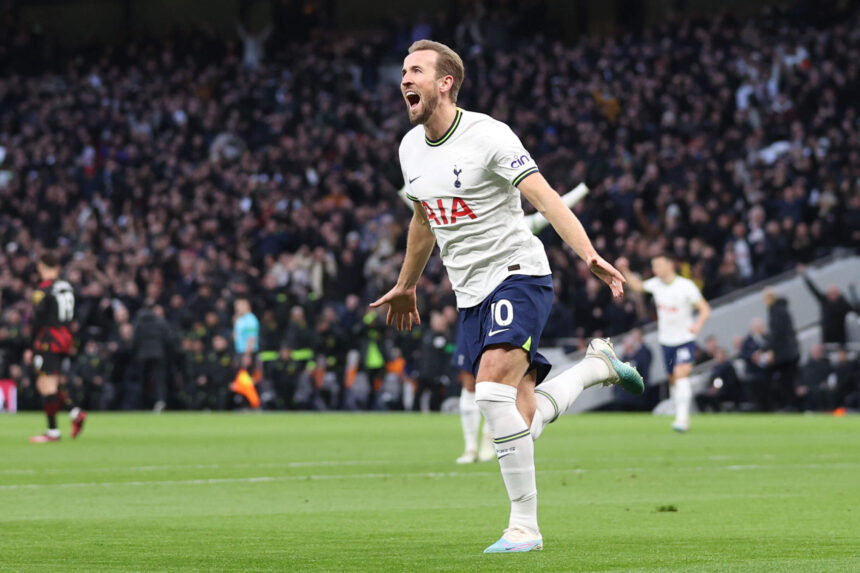The longest, strangest and most-discussed anomaly in football is over.
That space on Harry Kane’s CV, where the trophies ought to go, is empty no more. Bayern Munich are the 2024-25 Bundesliga champions and Kane has the medal he spent so long striving for.
The story of Kane’s career had, right up until this weekend, been one with an unusual footnote. For more than a decade, he has been one of the best strikers in football, developing and perfecting his game, achieving something close to mastery.
Advertisement
Kane, 31, has been one of the greatest goalscorers of his generation, chasing down every single target in front of him. Within a few weeks in spring 2023, he broke the all-time goalscoring records for Tottenham Hotspur and England.
His Spurs tally of 280 goals is 14 ahead of Jimmy Greaves. His England total of 71 is 18 ahead of Wayne Rooney’s tally. He could play for England for another five years, bring up his century, double Rooney’s tally, and it would still feel like he had left a few goals on the table.
Kane breaking Spurs’ all-time scoring record (Adrian Dennis/AFP/Getty Images)
Those numbers may prove Kane’s greatness, but they get nowhere near fully conveying it. More than just a line-leading No 9, he is a playmaking No 10, too; two brilliant players in one, combining football intelligence, vision, imagination, precision, improvisation, art, skill and deft touches.
And yet despite all that, as everyone knows, no trophies — or at least not until Sunday, when second-placed Leverkusen failed to beat Freiburg, guaranteeing Bayern the title.
You could argue he has won quite a few things. They do not just hand out the World Cup Golden Boot, for example, which he won for his six goals in Russia in 2018. Or the Premier League Golden Boot, which he has won three times. Or the European Golden Shoe, which he won after being Bundesliga top scorer in his first season at Bayern. Or any number of player of the month or player of the season awards.
But none of his teams have won a competition while he has been there. You could put that down to Kane spending the first 14 years of his senior career either out on loan or at Tottenham Hotspur, an aspirational rather than elite club, not one challenging for the big trophies every year.
Kane has come close, though, for Spurs and for England. He has not decided a final in the way he decides games every week, with critics assuming he lacks an edge when it matters most.
First, he had the 2015 League Cup final, which may have come too early in the development of Mauricio Pochettino’s Spurs team, when a more experienced Chelsea side beat them.
He had the 2019 Champions League final, when he came straight back in from two months out with an ankle injury, and never looked like he could get a foothold as Liverpool won 2-0.
Advertisement
He had the 2021 League Cup final, too, when he was again back straight after an ankle injury. Manchester City edged a tight contest of few chances.
Bayer Leverkusen stormed to the Bundesliga title in his first season at Bayern Munich, another ‘failure’ added to the list.
Meanwhile, the story of Kane’s international career has been him helping drag England further than they have ever gone in the modern era, only to look so burdened by the end that he cannot complete the job alone. In Russia, Kane faded at the end of the tournament and was quiet when England lost the semi-final to Croatia.
At Euro 2020, Kane started slowly before coming alive in the knockouts. He scored a huge goal against Germany, two against Ukraine, and the winner in the semi-final against Denmark. But the final against Italy looked like another game too far.
At the Qatar World Cup, he is remembered more for the penalty that he missed against France, which could have taken the quarter-final to extra time, rather than the penalty he scored.
Harry Kane in the League Cup final in 2015 (Clive Rose/Getty Images)
Perhaps it should not have been a surprise that the same thing happened at the Euros in Germany last year. He scored against Denmark, but never looked at his best in the group. He got the extra-time winner against Slovakia in the round of 16, and the equaliser in the semi-final against the Netherlands. These are achievements no other English player can compete with.
But what do his critics remember of Kane’s impact at Euro 2024? That he got taken off with England needing a goal in the quarter-final, semi-final and final. Seeing the board go up after an hour against Spain and showing his number must have been painful. In part because it denied him the chance to change this narrative.
It is deeply unfortunate for Kane that of the five finals he has played for club or country, the only one where he looked at his sharpest was the first, when he was still 21. In the other four, he never quite looked right. No one could reasonably blame Kane for having been injured before any of these games.
Advertisement
Some people will hold these moments against Kane, for club and country, ignoring how, in many cases, Spurs and England were only in these big games because of Kane himself.
If the last few years have taught us anything, it is that there is a relentlessness to Kane, a constant commitment to self-improvement, to winning. That took him to Bayern and, eventually, the Bundesliga title.
And with Kane still having years left at the top, who would bet against him correcting that other anomaly, by scoring in a final sometime soon?
(Top photo: Harry Kane at Bayern’s match on Saturday, the day before their title was guaranteed; Ronny Hartmann/AFP via Getty Images)
